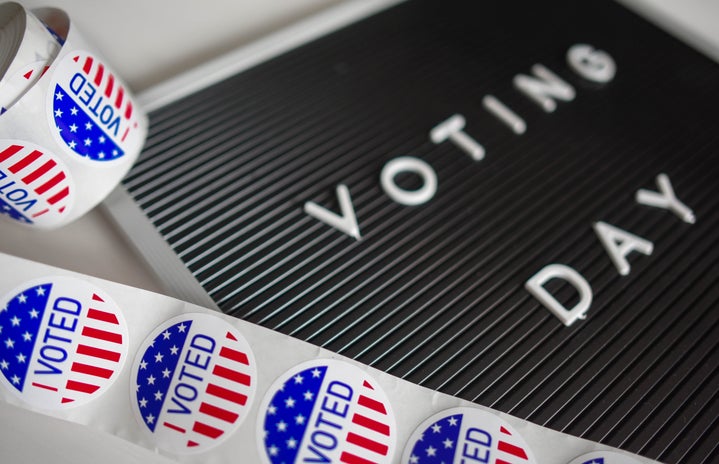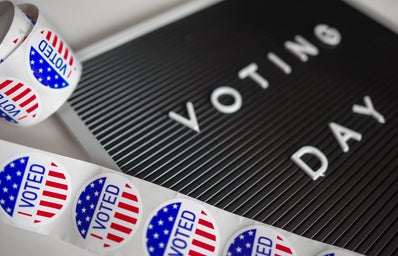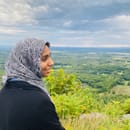I was clenching my voter card tightly as I drove in the car with my mom and dad to the early voting center. We were three eligible voters about to make a huge decision. My parents have voted a few times since coming to America. When they first heard that a person of color or a woman had never been president, they laughed, thinking about their homeland. “We’re one of the poorest countries, and in my lifetime we’ve always had two women dueling it out for the presidency!” I was too young, at only seven years old, to remember or understand the historic moment of Barack Obama’s first presidential win.
But I wasn’t too young to experience racism. Even as a first grader I knew very clearly black and brown kids were not treated the same as the white kids by our very white teacher.
My parents’ vote was a vote to change that.
My first time voting is a vote against racism.
I was a first-year in high school during the 2016 election. Even though I wasn’t old enough to remember very clearly what the previous two elections had been like, I knew something was different. I heard from teachers, my own peers, in the media say there was corruption in the government, American politics was riddled with scandal, and how this election was about choosing between the lesser of two evils.
And I thought, what happened to “We the People”?
The hateful rhetoric of the 2016 election caught up to me as ignorance strangled my classmates. Hate towards women, hate towards Muslims, hate towards minorities.
Walking into school on that cloudy morning, the day after Election Day, I fell into a somber step with my friends. My friends, a Pakistani American, an Indian American, and an African American.
My vote is for inclusion.
Both Muslims and non-Muslims were horrified by the immense hatred towards Muslim Americans. Suddenly, student groups like Muslim Student Associations were places of suspicious activity. People feared worshipping in the Masjid (Muslim place of worship) since large crowds of Muslims could mean attacks against them. Suddenly a woman covering her hair with a scarf or a man growing a beard was the equivalent of putting a target on their backs.
My vote is against Islamophobia.
When I heard one of my high school friends being interviewed for organizing a march against gun violence say, “I want my little first-grade brother not to have to worry about someone coming and shooting up his school,” I cried thinking about my own little siblings, about everyone’s little siblings.
My vote is against violence.
And here we are today. A worldwide pandemic has taken over our lives, the lives of our loved ones, and the lives of those we don’t even know but have somehow formed an unusual bond through this tragedy.
I first started to realize this pandemic was much more serious than it was being presented by the president when colleges started to shut down, and not too long after, my own high school. And here we are eight months later since the whole world shut down, more than 200,000 lives lost in America alone. Countless black men and women killed by police. Rushing the opening of schools and businesses. The blatant refusal to trust scientists and health experts.
Still, change is yet to come.
My vote is a life or death situation now.
A year ago, I would’ve laughed at myself if I heard someone say that. Election years are always intense, but could this one really change America forever?
Only if you believe it.
My vote is for the fallen angels in this pandemic. My vote is for those struggling with unemployment and food scarcity. My vote is for accessible health care for all.
My vote is not in the hopes of returning to the “way things were before.”
My vote is for the new normal.
For the normal that doesn’t include racism, Islamophobia, gun violence, hate, and ignorance.
So what does that normal look like?
That is for the American people to choose.
Vote now.


